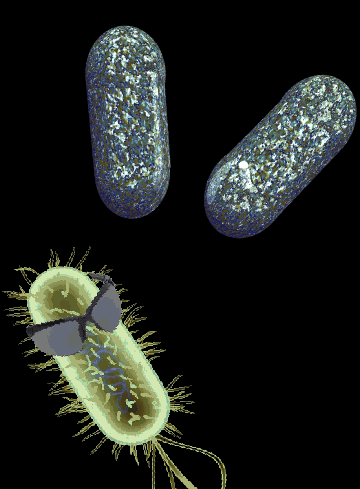E. coli edit for probiotic purpose

Bacteria can be genetically manipulated to kill specific pathogens, and previous studies have seen a laboratory strain of Escherichia coli modified so that when it is in the presence of the pathogen Pseudomonas aeruginosa, the E. coli cells explode and release a toxin that selectively kills the pathogen.
However, it has been unclear whether this approach would work for an infection in an animal.
Now, Singapore-based researcher Matthew Chang and colleagues have used the same approach to engineer E. coli Nissle 1917, a probiotic shown to have beneficial effects on certain intestinal disorders.
The modified system includes new features, such as a gene that allows the engineered microorganism to destabilise P. aeruginosa biofilms — surface-attached aggregates that are difficult to break down.
The researchers tested the efficacy of the engineered probiotic in two animal models of P. aeruginosa gut infection (in mice and in the worm Caenorhabditis elegans), and find that it was efficient in preventing the onset of an infection, and could also fight a pre-established one.
The authors suggest that these engineered probiotic bacteria could be freely administered for their normal probiotic-associated benefits, while also potentially protecting against certain pathogens.
The team is now moving on to further studies, with the hope of examining whether the technique can be translated to humans.







 Print
Print